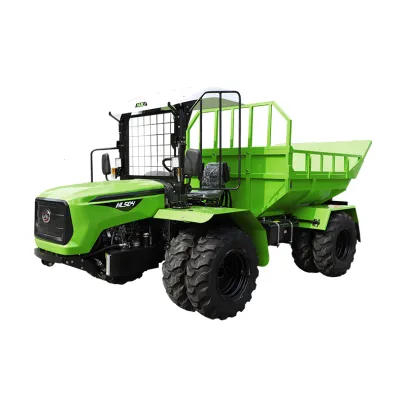Is Your Tractor Ready for Smart Farming Technology?
Oct. 22, 2024
As agricultural technology continues to evolve, the integration of smart farming solutions has become increasingly essential for farmers looking to boost productivity and reduce operational costs. The question many farmers are asking is whether their current tractors are ready to support this shift. The adoption of smart farming technology requires more than just adding gadgets—tractors need to have the right infrastructure, sensors, and compatibility to make the most of modern farming innovations.
The Rise of Smart Farming Technology
Smart farming technology, often referred to as precision agriculture, leverages data, automation, and connectivity to optimize farming operations. From GPS-guided tractors to IoT-connected devices, the goal is to enhance efficiency, reduce waste, and increase yields. For farmers, embracing this technology can lead to higher profitability, but it also requires a farm tractor that can handle the transition.
Connectivity and Data Integration
A key feature of smart farming is the ability to collect and analyze real-time data. Sensors placed on tractors and other machinery can monitor soil conditions, crop health, and even equipment performance. For your tractor to be part of this data-driven ecosystem, it must be compatible with data collection tools such as GPS systems, wireless connectivity, and cloud-based platforms. Older tractors may not have the necessary hardware, but there are retrofit options available to upgrade existing machines.
Automated Systems and Precision Steering
One of the most significant advances in smart farming is the use of automated systems, particularly precision steering technology. With GPS-guided tractors, farmers can ensure they are planting, fertilizing, and harvesting with optimal precision. This reduces overlap, minimizes fuel consumption, and ensures more efficient use of resources. If your tractor lacks GPS integration or automated steering capabilities, you may be missing out on significant operational improvements.

Assessing Your Tractor’s Compatibility
Before investing in smart farming technology, it's crucial to evaluate whether your current Agricultural tractor is up to the task. There are several factors to consider, such as the tractor’s age, onboard technology, and adaptability to new systems. Tractors manufactured in the last decade are more likely to have features like CAN-bus systems, which facilitate communication between sensors and equipment, making them easier to upgrade with smart farming technology.
Age of the Tractor
Older tractors may lack the electronic systems needed to support smart technology. While they can still be powerful workhorses, they might not be compatible with the latest farming tools without significant upgrades. If your tractor is over 10 years old, you may want to explore retrofit kits or even consider replacing it with a newer model designed for smart farming.
Available Upgrades and Retrofits
Even if your tractor is not fully equipped for smart farming, that doesn’t necessarily mean you need to invest in a brand-new machine. Many manufacturers offer retrofit solutions, such as GPS systems, sensors, and monitoring devices that can be added to older tractors. These upgrades can provide you with many of the benefits of a new smart tractor at a fraction of the cost.
Benefits of Smart Farming Technology
The benefits of adopting smart farming technology go beyond efficiency. By leveraging data, automation, and connectivity, farmers can make more informed decisions, reduce input costs, and optimize yields. Let’s take a look at some of the specific advantages.
Improved Resource Management
One of the key benefits of smart farming is improved resource management. Automated systems can ensure that fertilizers, water, and other inputs are used exactly where and when they are needed. This minimizes waste, reduces environmental impact, and ensures that crops receive the precise nutrients they need to thrive.
Predictive Maintenance
Smart Modern Agricultural tractors equipped with sensors can monitor their own health, alerting farmers to potential issues before they become costly problems. Predictive maintenance helps reduce downtime, extends the life of the tractor, and cuts maintenance costs by addressing small issues early on.
Increased Productivity
By automating repetitive tasks and optimizing resource use, smart farming technology allows farmers to cover more ground in less time. This leads to higher productivity, allowing for larger harvests and better overall farm management. Whether it’s automated steering, precise planting, or real-time crop monitoring, smart technology can significantly increase the efficiency of farm operations.
In conclusion, if you're considering upgrading to smart farming technology, it’s important to assess your tractor's current capabilities and compatibility with these systems. Whether through retrofits or investing in a newer model, ensuring that your garden tractor is equipped for the future will allow you to reap the full benefits of precision agriculture, leading to more efficient, productive, and sustainable farming operations.
49
0
0
All Comments (0)
Previous: None
Next: None
If you are interested in sending in a Guest Blogger Submission,welcome to write for us!


Comments